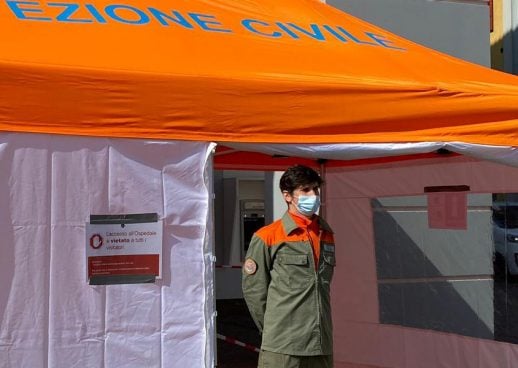The role of Switzerland's civil protection service is to offer support to the military in emergency situations or natural disasters.
During the coronavirus outbreak, they will help the army hospital battalions that were deployed in March, to carry out a “special service towards the security and protection” of the Swiss public.
Currently about 5,000 of the civil protection members are mobilised by the government to help the soldiers who have been deployed in the fight against the spread of coronavirus.
The major task of the civilian service is to help with the logistical, non-medical issues experienced by hospitals and other medical institutions during the pandemic.
They help set up tents outside the hospitals, which are used to screen and test potential Covid-19 patients, help transport patients and equipment, and install new hospital units where needed.
Members of civil protection go from hospital to hospital, distributing essential supplies and sanitary materials such as masks and disinfectants, to medical personnel.
In nursing homes for the elderly, civil protection members are often stationed at the entrance, where they monitor the traffic and ‘filter’ everyone who comes in. They measure the temperature of incoming staff and give them face masks.
They also relieve employees who are overwhelmed by the additional duties by distributing meals, reading to the most incapacitated residents, and taking them for walks.



 Please whitelist us to continue reading.
Please whitelist us to continue reading.
Member comments